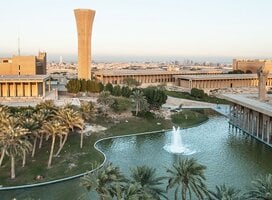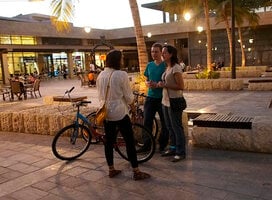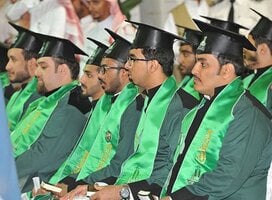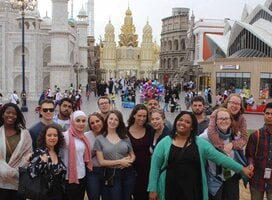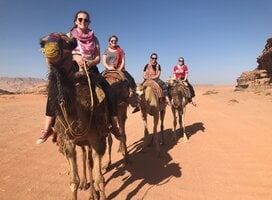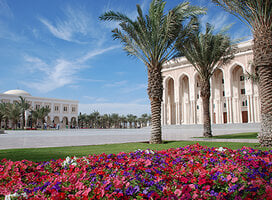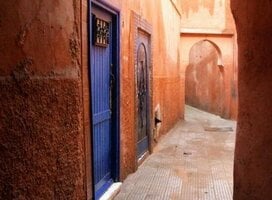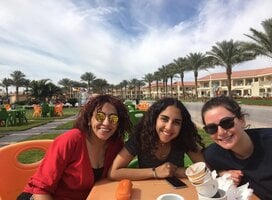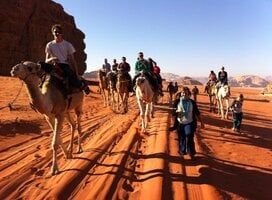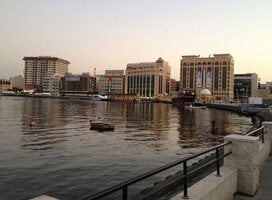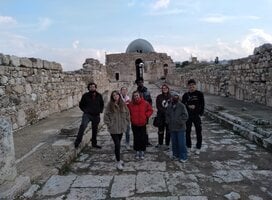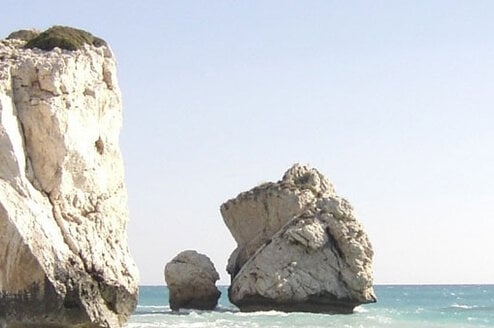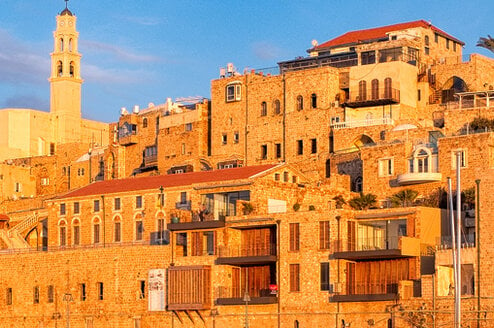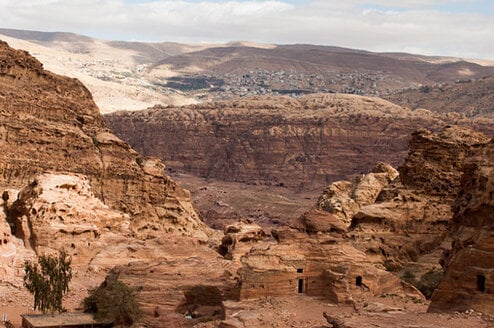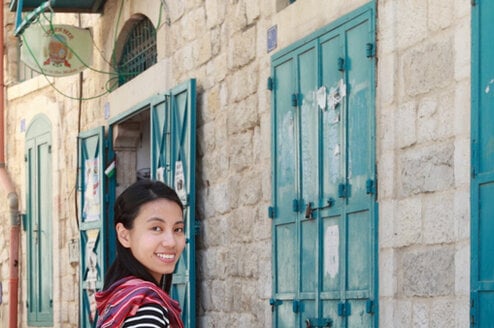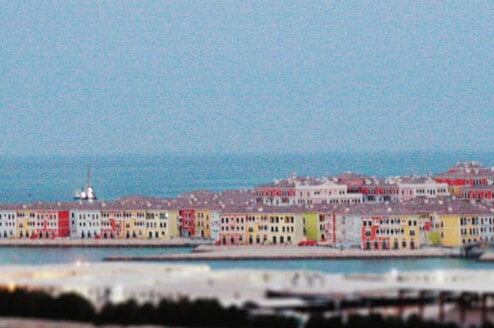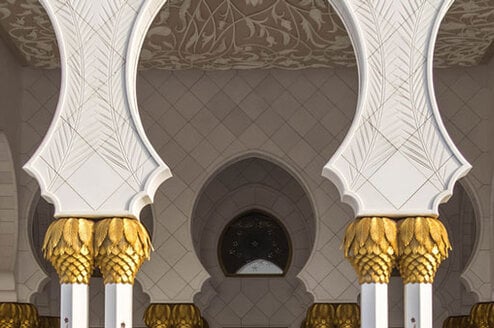Study Abroad Programs in Saudi Arabia
Although it’s a relatively new country, Saudi Arabia is a fascinating place to study abroad. After it was founded in 1932, this new nation soared to economic, religious, and political importance, not only in the Middle East, but throughout the entire world.
As the home to Mecca and Medina and an Arabic-speaking nation, Saudi Arabia is a great option for students who want to take courses in Islam studies or Arabic.
Saudi Arabia is great for students who love history and want to experience an eclectic blend of ancient and modern traditions.
The main study abroad destination in Saudi Arabia right now is the King Abdullah University of Science and Technology (KAUST). Founded in 2009, KAUST is a private research university which offers courses in English that focus on science and technology. Available programs and courses at FAUST include:
- MS Fellowships, MS/Ph.D Fellowships, and Ph.D Fellowships in science, engineering, or technology disciplines
- Visiting Student Research Program: fully-funded research programs for undergraduate and postgraduate students in select fields that last from 3-6 months
- Visiting Student Opportunities: more short-term programs for master’s and Ph.D students to collaborate and pursue research at KAUST
- Undergraduate Enrichment Program Opportunities: programs where undergraduates compete to showcase their research. The winners are invited to present their research at FAUST as well as participate in other enrichment activities.
Popular Cities
The main study abroad options through KAUST are located in Thuwal, a small town located on the coast of the Red Sea. But if you're in the mood to explore the other cities in Saudi Arabia, consider Riyadh. The capital of Saudi Arabia, Riyadh is also the financial and political center of the country. With its skyscrapers and shiny new buildings, it is the epitome of a new city with its roots planted in conservative history.
Jeddah is also a potential option for travelers. One of the largest cities in Saudi Arabia, Jeddah is known as the commercial capital of the country. It has more of a relaxed feel than Riyadh, and you can glimpse what the city used to be like in Old Jeddah.
Finally, the ancient cities of Mecca and Medina -- two of the main religious sites for the religion of Islam -- are also worth visiting, but only if you’re a Muslim. If you are not Muslim, it is forbidden to enter these sacred sites.
Housing
At KAUST, the main study abroad option in Saudi Arabia, foreign students are provided with on-campus housing. The options include: 1-4 bedroom villas, townhouses, and apartments in three residential areas.
Visas
In order to enter Saudi Arabia, both US and Canadian citizens are required to have a current passport that will be valid for at least six months and a visa. You are also required to have a final exit or exit/reentry visa if you want to leave Saudi Arabia. The process to obtain a visa can be quite lengthy and requires a lot of paperwork, so be sure to give yourself plenty of time to complete all of the steps needed.
For the most up-to-date and relevant information, check with your government's website and the Saudi Arabian embassy to find what you will need to secure a visa.
Costs
The Saudi Arabian currency is the Riyal (SAR). In general, the average cost of living is cheaper than in the U.S. A one-way ticket on local transport is about 2 SAR, and a monthly transportation pass is about 200 SAR. If your housing requires you to pay for utility and internet, expect to pay around 303 SAR per month for utilities, and 150 SAR for internet.
For food, transportation, leisure, and personal expenses, expect to budget around $1300 USD for a month in Saudi Arabia. Be aware that imported goods tend to be very expensive.
Cultural Etiquette
When you are studying abroad in Saudi Arabia, keep in mind that it is fundamentally a Muslim country (the judicial system itself is based on Shari’a law), and even as a foreign student, you will be held accountable to local laws. It is advised that you dress conservatively. If you are a woman, you should try to follow the strict Saudi dress code and wear a hard scarf (shayla) and a full-length cloak called an abbaya. Men, meanwhile, aren’t allowed to wear shorts or go shirtless in public.
There are also strict gender rules in Saudi Arabia. Women are not allowed to associate with men outside of the home unless they are with family members. They are also not allowed to ride bicycles or drive cars.
Many things found in Western countries are prohibited, including: discussing religion or politics, holding hands in public, dancing, music, foreign movies, and possessing, importing, and consuming pork, alcohol, or illegal drugs.
It’s also important to be respectful and adhere to religious customs even if you are not Muslim. During Ramadan, for example, Muslims will fast from sunrise to sunset. You should try to follow suit as well and be discreet in all of your actions.
Health
Before you study abroad, see if your government has issued any travel health notices, and take caution as advised. Also, make sure to have any updated vaccinations or shots that your doctor, government, and/or study abroad program recommends. Right now, the main disease that foreign students are warned about is the Middle East Respiratory Syndrome (MERS-CoV), a viral respiratory disease caused by a novel coronavirus.
Safety
If you’re considering studying abroad in Saudi Arabia, take caution and check out the potential travel warnings your government issues. Both the U.S. Department of State and the Government of Canada issued travel warnings this past summer in light of the terrorist attacks and violence that have occurred there recently. Both countries warn their citizens against traveling anywhere close to the Yemeni border in particular.
Avoid being around public demonstrations at all costs; though they do happen, they’re technically illegal and can turn violent, and be wary of road travel. Saudi Arabia is considered to be one of the most dangerous places in the world to drive, so it is advised that if you’re using a taxi, you should use only prearranged and licensed taxi companies.
If you decide to go abroad, register for the Smart Traveler Enrollment Program (STEP) through the U.S. Department of State if you’re an American citizen, or the Registration of Canadians Abroad through the Canadian government if you’re a Canadian citizen. This way, you can be notified by potential threats of violence and be able to communicate with important officials from your country if necessary.
